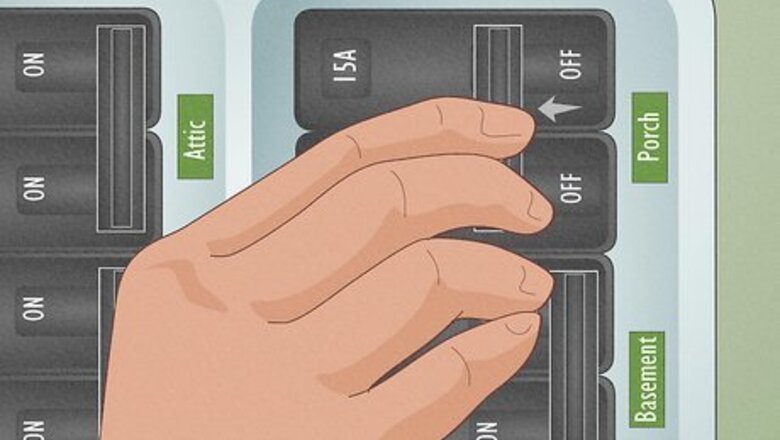
views
- Shut off the power to your breaker box before replacing or installing a doorbell.
- A doorbell transformer must be professionally installed before you can wire your new doorbell.
- Wire the doorbell button to the transformer. Then wire the transformer to the chime. Then wire the chime back to the doorbell button.
Replacing an Existing Doorbell
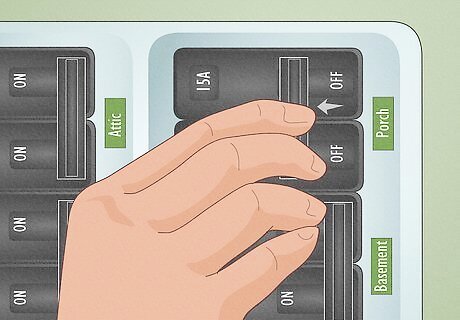
Shut off power to the area at the breaker box. Locate your breaker box in your garage, basement, or on the side of your home. Use the diagram on the inside of the door panel or use the labels to find the switch that controls power to the front of your home. Flip the switch to turn off the power. Make sure the power is turned off by flipping a light switch near the door where you’re installing the doorbell. It’s very important that you shut off the power to avoid shocking yourself. If
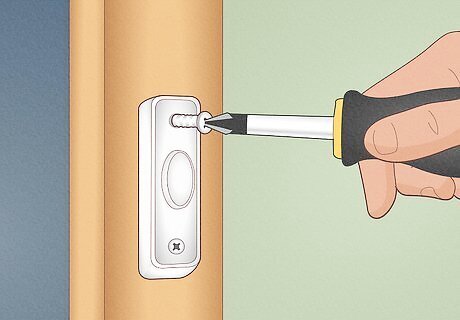
Use a screwdriver to remove the screws from the doorbell button panel. Locate the screws mounting the doorbell button panel to the outer wall or door casing of your home. Take a screwdriver or power drill and remove the screws to allow access to the wiring on the backside of the doorbell button panel. Don’t try to pull off the doorbell yet or you could damage the wires.
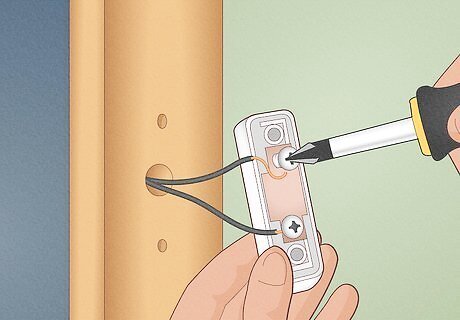
Disconnect the wires with a screwdriver and remove the doorbell button panel. Look on the backside of the doorbell to find the wires connected to it. Take your screwdriver and loosen the terminal screws holding the wires in place. Slide the wires out of the terminals and remove the old doorbell button casing. Don’t yank or force the wires so you don’t accidentally damage or strip them.
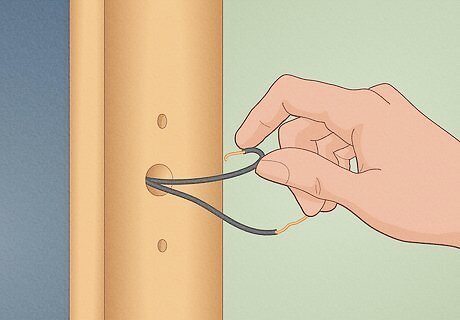
Bend the top wire to remember which one is which. The doorbell has 2 wires connected to it, 1 at the top and 1 at the bottom, and it’s important that you remember which one is which so you can hook up the new one properly. Take the top wire and bend the end of it so you can tell them apart. You can also take a picture to see what wire connects to what. Sometimes, the wires may be different colors, but it’s common for them to be too similar to tell apart.
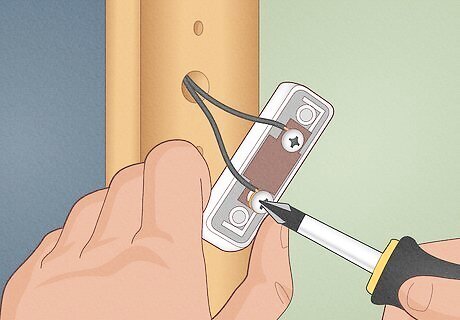
Reconnect the wires to the terminals on your new doorbell button panel. Remove the new doorbell button panel from its packaging and locate the terminals on the backside. Connect the top wire to the upper terminal and the bottom wire to the lower one. Use your screwdriver to tighten the terminals so the wires are held securely. The upper wire connects the doorbell button panel to the transformer that provides power to the doorbell. The bottom wire connects it to the chimes that sound when you press the button.
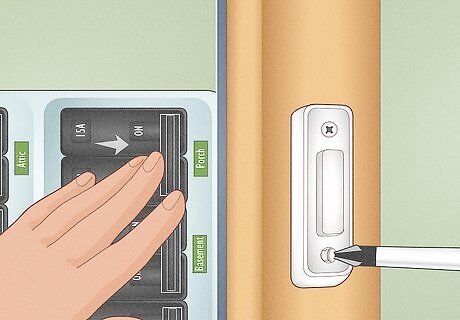
Flip on the breaker and screw the doorbell it into place. Restore power to the area by flipping the switch back to its original position. Press the doorbell button to see if it works. If it does, use your screwdriver or a drill to fasten the doorbell to your wall or door casing using the screws that came with it. The packaging of the doorbell should contain screws for you to use, but if it doesn’t, you can use screws that fit into the screw holes on the doorbell. If the doorbell chimes don’t sound, they may be damaged. You can replace your doorbell chimes if they’re damaged or faulty. However, if there’s an electrical issue, you may want to contact a professional electrician.
Connecting a Doorbell to the Transformer
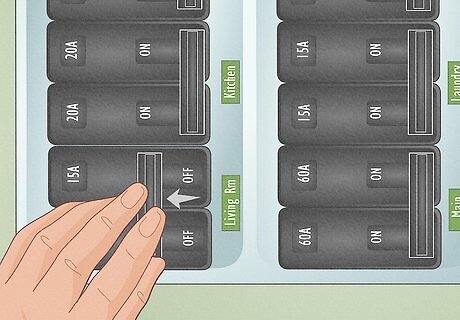
Flip the breaker switch to cut off power to the area. Before you begin working, locate your breaker box in your garage, basement, or on the side of your home. Flip the switch that controls power to the area that you’re installing your doorbell so you can work safely. Use the diagram on the inside door panel of the breaker box or look for a label on the switches to find the right one. For instance, if you’re wiring a doorbell to your front door, flip off the switch that controls power there. If you are not sure which breaker turns off your doorbell unit, turn off the master breaker to shut off power to your entire house. Try turning on lights in the area to make sure the power is shut off.
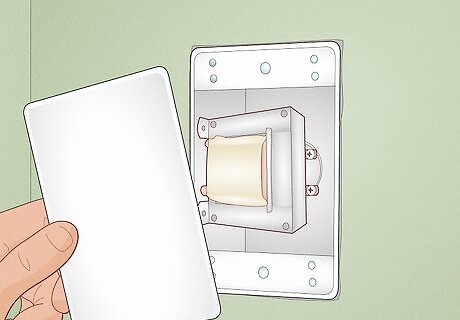
Locate the doorbell transformer in the outlet box near the door. A doorbell transformer is an electrical component that literally transforms power from a higher voltage to a lower one to power your doorbell and chimes. It’s a small, metal box with 2 terminals and is usually located in an outlet box near the front door. Open up outlet boxes or look beneath them to find the transformer. If the transformer box isn’t located in an outlet box, check near your breaker box for it. It could be attached to the top or bottom of it.
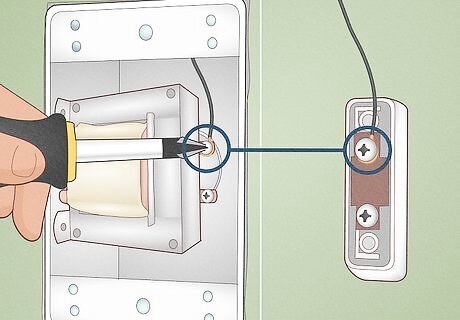
Connect the transformer to the top terminal with a 16 AWG wire. 16 AWG wire is a thin gauge of wire that can easily handle the voltage needed to power your doorbell. Strip away about ⁄2 inch (1.3 cm) of the sheathing with a wire stripper or a knife to expose the wires. Use a screwdriver to loosen the screw on the top terminal of the transformer. Slide the exposed wire beneath the terminal screw and then tighten it so it’s secure. Then, connect the other end of the wire to the top terminal of your doorbell the same way. You can drill a hole in your wall to thread the wire to connect the terminal to the doorbell or cover the wire with a cord cover. Make sure the terminal screws are tightly secured so the wires are connected and won’t come out of place. You can find 16 AWG wire at your local hardware store, electrical supply store, or by ordering it online.
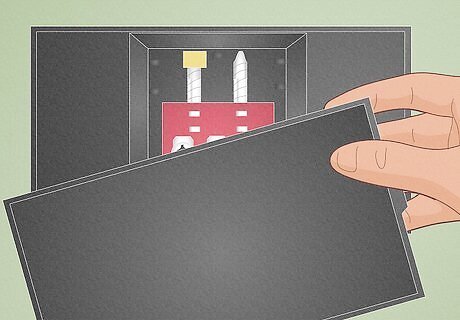
Remove the panel from the doorbell chime. Locate your doorbell chimes, which are usually on the wall in the front hall or living room near the front door. Remove the cover from your chimes using screws. If your doorbell transformer is faulty or damaged, you can replace it yourself. But, if you don’t have one installed yet, have a professional electrician do the job so that it’s done properly and safely.
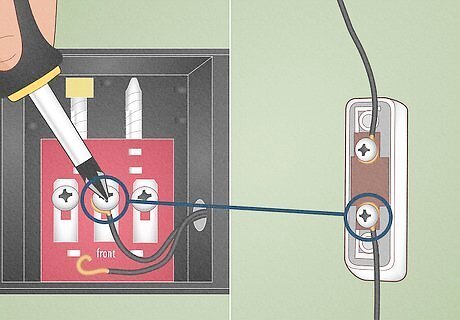
Attach a 16 AWG wire from the bottom terminal or the doorbell button panel to the chimes. Use a 16 AWG wire and strip away about ⁄2 inch (1.3 cm) of the sheathing with wire strippers or a knife so the wires are exposed. Use a screwdriver to loosen the terminal screw above the terminal labeled “Front” on the doorbell chime. Slide the wire beneath it, and then tighten the screw. Connect the other end of the wire to the bottom terminal of your doorbell. Thread the wire through your wall to connect your chimes to your doorbell, or cover the wire with a cord cover so it’s hidden from view. Your transformer and chimes should already be connected from when your transformer was installed. The terminal labeled “Front” is for the front door. If you’re installing a second doorbell, or have a back door doorbell, attach the wire from the second doorbell button to the terminal labeled “Back.”
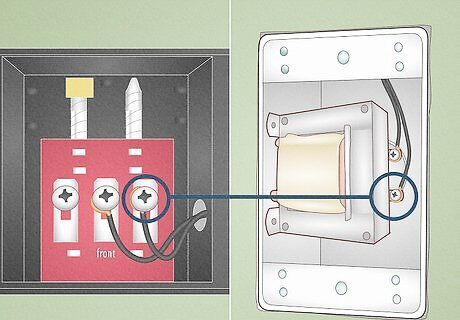
Connect the wire from the transformer to the chime. Use a 16 AWG wire and strip away about ⁄2 inch (1.3 cm) of the sheathing with wire strippers or a knife so the wires are exposed. Use a screwdriver to loosen the terminal screw above the terminal labeled “Trans" on the doorbell chime. Slide the wire beneath it, and then tighten the screw. Connect the other end of the wire to the bottom terminal of your doorbell.
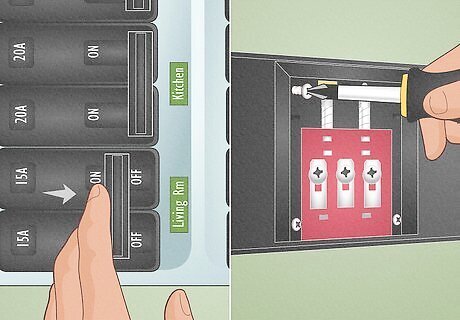
Restore the power and screw the doorbell onto the wall. Once everything is connected, flip the breaker switch back on to restore the power. Press the doorbell button to make sure it’s working, and use a screwdriver or a power drill to fasten the doorbell to the outside wall or door casing of your home to finish the job.













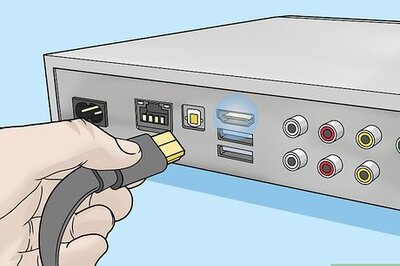





Comments
0 comment